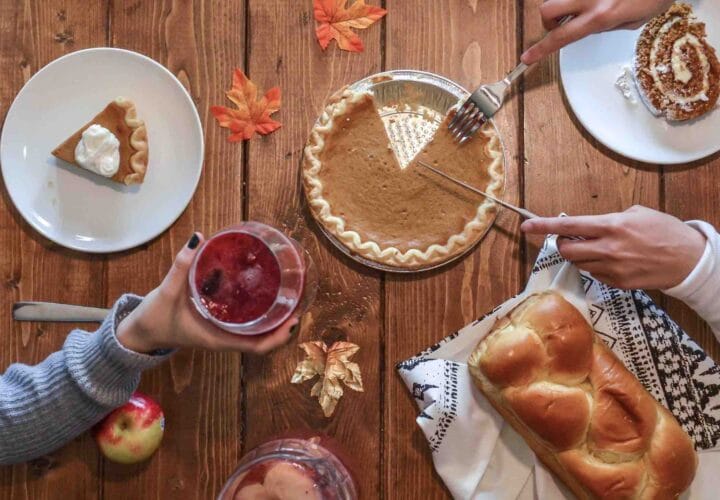Dementia care expert Teepa Snow shares guidance for making the holiday season more dementia-inclusive.
For many families, the holidays mean mistletoe and holly, gift-giving, big shared meals — and lots of activity. Given the changes that come with dementia, family holiday traditions may call for a little bit of creative reimagining.
Instead of dwelling on what the holidays were like in years past, some of the best advice dementia care experts have to offer involves focusing on the present and developing strategies to roll with the changes and to preserve the holiday spirit of gratitude. Try these four ways to make this holiday season calmer and more inclusive for a family member living with dementia — and for all those celebrating with them.
1. The Calmer, the Merrier
According to Teepa Snow, occupational therapist and dementia care educator, the key to approaching the holidays is celebrating without being elaborate with festivities. “Think smaller,” she said. Varying holiday aromas, sounds and visuals can be overwhelming, and simplifying celebrations can go a long way with reducing sensory overload. So, Snow encouraged families to themselves, “What are the most important aspects of the food or the gathering that we want to preserve?”
When it comes to planning the holiday menu, instead of serving an array of dishes, consider what the essential foods are for the family: Is it the sweet potato casserole, turkey or mashed potatoes?
Simplicity extends to presenting silverwares for holiday meals too, and Snow suggested paring down to the key utensils. And, be aware of overstimulating background noise and loud chatter or simultaneous conversations.
Snow added that kicking off a gathering with a familiar tradition, whether it’s a song, prayer or activity, can help a person with dementia feel more oriented and engaged.
2. Find Ways to Make Favorite Activities Manageable
Dementia can make it challenging for a person to participate in things they enjoy doing, and that can lead to feelings of exclusion, loneliness or frustration. Snow encouraged caregivers to consider one or two activities this family member has loved in the past, and to search for strategies to support them in taking part if possible.
If cooking and meal prep is something a family member has always enjoyed, look for simple ways to contribute and try to make involved tasks simpler. For example, if making mashed potatoes for Thanksgiving dinner, set aside the electronic mixer and try a hand masher, which can be easier to manage, Snow said. Along the way, keep them part of the decision-making process by asking friendly, simple questions: “Mom, do you think this is enough milk for the mashed potatoes?”
Want to learn more about clinical trials
for Alzheimer’s and dementia?
Check out the Lilly Trial Guide.
3. Build in Time — and Space — to Rest
Planning dementia-inclusive activities is a great step to a good holiday, but, Snow noted, be sure to keep activities well-spaced and relatively brief in duration. Adding downtime, like having a cup of tea, offers the person with dementia a chance to rest and recharge. During this downtime, Snow advised creating a more private or out-of-the-way space where a loved one can relax and observe.
Given that dementia often disrupts people’s circadian rhythm, or the body’s internal clock, Snow advised on being “circadian smart” and to consider hosting gatherings at the time of the day when they tend to function best. She also recommended having someone who knows the person with dementia well to keep an eye out on how they’re doing during a gathering.
4. Let It Go
Despite a family’s best efforts, the holiday gathering may not always work out. Snow said it’s okay to call it a day if a person with dementia feels out of sorts. So, have a backup plan, she noted, like designating someone to drive them home and care for them, which offers the primary caregiver a chance to stay for the rest of the gathering.
“Be willing to let go if it’s not working, and really respect the person’s response,” Snow said. “If everything you’ve tried just doesn’t feel like a good match for them, be willing to say, ‘It’s just another day. We can be thankful any day. This big holiday thing — we may have built it up too much. It may be overwhelming.’”




